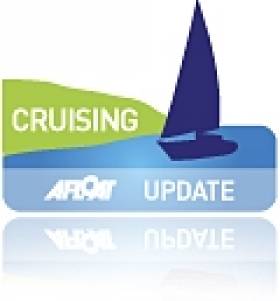Displaying items by tag: Saint Lucia
No Irish Cruisers Among Record Atlantic Rally Fleet
With one week to go before the ARC 2010 fleet leave Las Palmas for Rodney Bay in Saint Lucia, there are no Irish yachts entered in a fleet of 205 yachts drawn from 28 nations. Crews from the yachts already berthed in the marina took part in the official ARC 2010 Opening Ceremony. The final 34 yachts are expected to arrive in Las Palmas over the next few days, bringing the fleet total to 239 yachts, an all-time ARC record.
At midday Sunday 14 November hundreds of ARC participants took part in the Official Opening Ceremony for ARC 2010. Flag bearers from 28 different nations representing the countries of the yachts in this year's event led the procession as it made its way around the marina. The grand parade had a real festival atmosphere as crews gathered at the northern end of the marina and were led by an enthusiastic brass band cheered on by local spectators.
Andrew Bishop, Managing Director of World Cruising Club declared ARC 2010 officially "open" and the country flags were proudly hoisted on flagpoles around the marina as fireworks were launched in celebration. Sr Benito Cabrera from the Concejal del Ayuntamiento de Las Palmas (City of Las Palmas), Sr Jesus Ramirez, President of the Port of Las Palmas and Sr Roberto Moreno, President of the Patronato de Turismo de Gran Canaria were all thanked for their 25 year support and help. High Commissioner of Saint Lucia, Eldridge Stephens, gave a rousing speech thanking ARC participants for visiting Saint Lucia after the devastation caused hurricane Tomas 10 days ago.
Sr Moreno then welcomed all the international sailors on behalf of the whole Island of Gran Canaria. The support of the Gran Canaria tourist board for the ARC is one of the longest running sailing sponsorships for a regatta.
The fiesta atmosphere continued with ARC participants and local people taking part in Don Pedro's famous International Dinghy Race. The race across the marina encourages crews, dressed in a variety of fancy dress costumes, to use any tactics they like to outwit their opponents. Water bombs and flour missiles were commonplace! A prizegiving for the dinghy race and Don Pedro's dockside BBQ went on late into the evening.
The second week of the pre-start is the busiest, as more crew fly in and the yachts start their provisioning and finish off last minute preparations for the Atlantic crossing.




























































